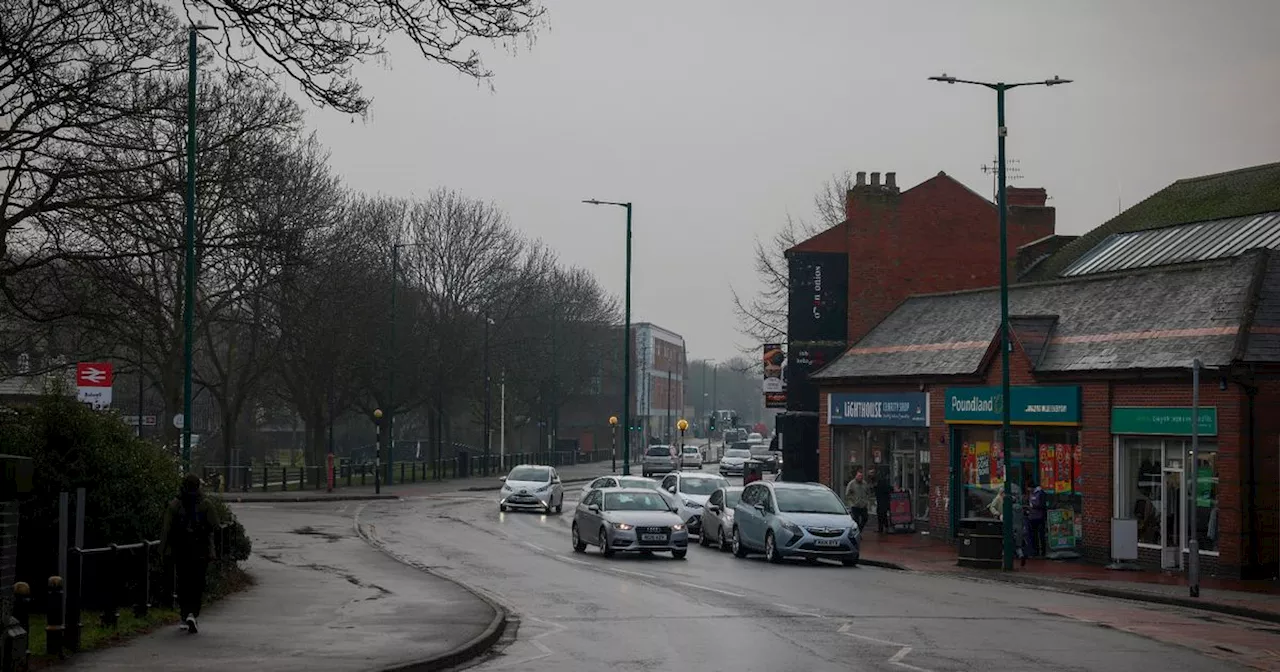The National Crime Agency (NCA) has intensified its efforts to combat people smuggling by removing over 8,000 social media accounts promoting dangerous small boat crossings to the UK in 2024. This reflects a 40% increase compared to the previous year and highlights the agency's commitment to disrupting these criminal networks.
Social media has become a key tool for people smugglers, preying on vulnerable individuals seeking a better life. The National Crime Agency (NCA) has revealed that over 8,000 social media accounts promoting dangerous small boat crossings to the UK were shut down in 2024 alone. This represents a 40% increase compared to 2023, bringing the total number of accounts removed since December 2021 to over 16,500.
These accounts, found on platforms like Facebook, X (formerly Twitter), Youtube, and TikTok, often featured ad-style video testimonials from individuals who had been smuggled into the UK, praising the services offered. Another tactic employed by smugglers included running contests offering prizes to migrants who referred a friend to their illegal operation. The NCA also targeted accounts that falsely advertised trips using speedboats, exploiting individuals' hopes for a quicker and safer journey. Additionally, accounts selling fake ID documents were also identified and removed. Sophie Austin, operations manager at the NCA’s Online Communication Centre, emphasizes the critical role social media plays in the smuggling business. She states, 'It is a major part of their business model. Once migrants are engaged, they then move conversations onto encrypted messaging apps where they are hidden from law enforcement.'The NCA's proactive efforts aim to disrupt these criminal networks. By taking down these accounts, they make it more difficult for smugglers to operate and hope to deter individuals from risking their lives on dangerous journeys. Recent convictions highlight the severity of these crimes. Amanj Hasan Zada, for example, was sentenced to 17 years in prison in November 2024 after organizing small boat crossings from his home in Lancashire. Investigators uncovered videos he posted on social media featuring individuals he had smuggled, expressing gratitude for his assistance. Dilshad Shamo and Ali Khdir, based in Caerphilly, also utilized social media to promote their smuggling services, sharing videos of families traveling by plane and expressing their happiness. They pleaded guilty to facilitating migrant travel through Europe and await sentencing. The NCA attributes the recent surge in account removals to close collaboration with social media companies and advancements in detection capabilities
People Smuggling Social Media UK Border National Crime Agency Criminal Networks Migrant Trafficking
United Kingdom Latest News, United Kingdom Headlines
Similar News:You can also read news stories similar to this one that we have collected from other news sources.
 Five Youths Charged After Anti-Social Behaviour Images Circulate on Social MediaPolice in Cumbernauld have charged five youths following the widespread sharing of images on social media depicting alleged anti-social behaviour and weapon possession. Increased patrols have been implemented in the area.
Five Youths Charged After Anti-Social Behaviour Images Circulate on Social MediaPolice in Cumbernauld have charged five youths following the widespread sharing of images on social media depicting alleged anti-social behaviour and weapon possession. Increased patrols have been implemented in the area.
Read more »
 Nottingham Suburb Sees Mixed Reactions to Anti-Social Behavior CrackdownA recent police operation targeting anti-social behavior in Bulwell, Nottingham, resulted in eight individuals being removed from the streets. While residents welcomed the action, some expressed concerns about its long-term effectiveness.
Nottingham Suburb Sees Mixed Reactions to Anti-Social Behavior CrackdownA recent police operation targeting anti-social behavior in Bulwell, Nottingham, resulted in eight individuals being removed from the streets. While residents welcomed the action, some expressed concerns about its long-term effectiveness.
Read more »
 Can We Learn From Autistic People to Handle Social Media Comparisons?This article explores how autistic individuals' different social processing can offer insights into managing the negative impact of social media comparisons. Research suggests autistic people experience less envy compared to neurotypical individuals when exposed to social comparisons. The article delves into potential reasons behind this difference, such as variations in perspective-taking and reliance on tangible information during social interactions. It argues that by adopting strategies focused on self-appreciation and personal growth, we can mitigate the potential harm of social media comparisons and cultivate a more positive online experience.
Can We Learn From Autistic People to Handle Social Media Comparisons?This article explores how autistic individuals' different social processing can offer insights into managing the negative impact of social media comparisons. Research suggests autistic people experience less envy compared to neurotypical individuals when exposed to social comparisons. The article delves into potential reasons behind this difference, such as variations in perspective-taking and reliance on tangible information during social interactions. It argues that by adopting strategies focused on self-appreciation and personal growth, we can mitigate the potential harm of social media comparisons and cultivate a more positive online experience.
Read more »
 UUP Councillor Darryl Wilson Removes Party References from Social MediaCllr Darryl Wilson, who was passed over for an Assembly seat despite backing from former UUP leader Doug Beattie, has deleted all UUP references from his social media profiles. Wilson's move comes after he expressed disillusionment with the party's decision-making process.
UUP Councillor Darryl Wilson Removes Party References from Social MediaCllr Darryl Wilson, who was passed over for an Assembly seat despite backing from former UUP leader Doug Beattie, has deleted all UUP references from his social media profiles. Wilson's move comes after he expressed disillusionment with the party's decision-making process.
Read more »
 UUP Councillor Darryl Wilson Removes Party Affiliation from Social MediaDarryl Wilson, a councillor who played a role in Doug Beattie's resignation as UUP leader, has distanced himself from the party by removing all references to it on his social media.
UUP Councillor Darryl Wilson Removes Party Affiliation from Social MediaDarryl Wilson, a councillor who played a role in Doug Beattie's resignation as UUP leader, has distanced himself from the party by removing all references to it on his social media.
Read more »
 The Decline of Reading: From Party Envy to Social Media ScrollingReading, once a coveted pastime, is facing a decline. The author reflects on the shift from bookish admiration to sheepish admissions about not reading enough. Experts and surveys highlight the dwindling reading habits, particularly among younger generations, pointing to the allure of social media and the erosion of reading skills.
The Decline of Reading: From Party Envy to Social Media ScrollingReading, once a coveted pastime, is facing a decline. The author reflects on the shift from bookish admiration to sheepish admissions about not reading enough. Experts and surveys highlight the dwindling reading habits, particularly among younger generations, pointing to the allure of social media and the erosion of reading skills.
Read more »
